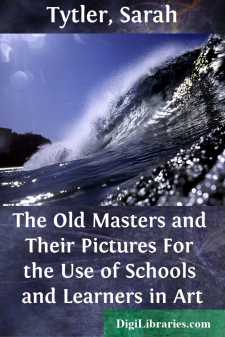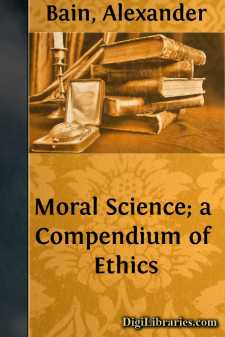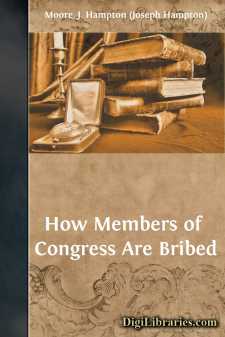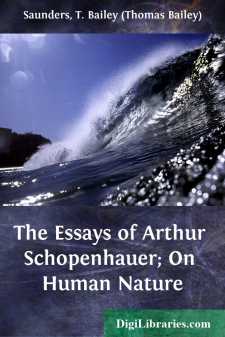Categories
- Antiques & Collectibles 13
- Architecture 36
- Art 48
- Bibles 22
- Biography & Autobiography 813
- Body, Mind & Spirit 142
- Business & Economics 28
- Children's Books 17
- Children's Fiction 14
- Computers 4
- Cooking 94
- Crafts & Hobbies 4
- Drama 346
- Education 46
- Family & Relationships 57
- Fiction 11829
- Games 19
- Gardening 17
- Health & Fitness 34
- History 1377
- House & Home 1
- Humor 147
- Juvenile Fiction 1873
- Juvenile Nonfiction 202
- Language Arts & Disciplines 88
- Law 16
- Literary Collections 686
- Literary Criticism 179
- Mathematics 13
- Medical 41
- Music 40
- Nature 179
- Non-Classifiable 1768
- Performing Arts 7
- Periodicals 1453
- Philosophy 64
- Photography 2
- Poetry 896
- Political Science 203
- Psychology 42
- Reference 154
- Religion 513
- Science 126
- Self-Help 84
- Social Science 81
- Sports & Recreation 34
- Study Aids 3
- Technology & Engineering 59
- Transportation 23
- Travel 463
- True Crime 29
Sort by:
by:
Sarah Tytler
EARLY ITALIAN ART—GIOTTO, 1276-1337—ANDREA PISANO. 1280-1345—ORCAGNA, 1315-1376 GHIBERTI, 1381-1455—MASACCIO, 1402-1428 OR 1429—FRA ANGELICO, 1387-1455. A pencil and paper, a box of colours, and a scrap-book, form so often a child's favourite toys that one might expect that a very large portion of men and women would prove painters. But, as we grow in years and knowledge, the discrepancy...
more...
CHAPTER I. Mrs. Stevens is Frightened In the drowsy heat of the summer afternoon the Red House was taking its siesta. There was a lazy murmur of bees in the flower-borders, a gentle cooing of pigeons in the tops of the elms. From distant lawns came the whir of a mowing-machine, that most restful of all country sounds; making ease the sweeter in that it is taken while others are working. It was the hour...
more...
COOKED FISH Canapés Cold boiled fish makes excellent canapés. To each half pint of fish allow six squares of toasted bread. If you have any cold boiled potatoes left over, add milk to them, make them hot and put them into a pastry bag. Decorate the edge of the toast with these mashed potatoes, using a small star tube; put them back in the oven until light brown. Make the fish into a creamed fish. Rub...
more...
by:
John Ager
1. PART FIRST. LOVE IS THE LIFE OF MAN. Man knows that there is such a thing as love, but he does not know what love is. He knows that there is such a thing as love from common speech, as when it is said, he loves me, a king loves his subjects, and subjects love their king, a husband loves his wife, a mother her children, and conversely; also, this or that one loves his country, his fellow citizens,...
more...
PROLOGUE What I am anxious to attempt in this anticipatory summary of the contents of this book is a simple estimate of its final conclusions, in such a form as shall eliminate all technical terms and reduce the matter to a plain statement, intelligible as far as such a thing can be made intelligible, to the apprehension of such persons as have not had the luck, or the ill-luck, of a plunge into the...
more...
by:
Alexander Bain
PART I. THE THEORY OF ETHICS. CHAPTER I. PRELIMINARY VIEW OF ETHICAL QUESTIONS. I.—The ETHICAL STANDARD. Summary of views. II.—PSYCHOLOGICAL questions. 1. The Moral Faculty. 2. The Freedom of the Will; the sources of Disinterested conduct. III.—The BONUM, SUMMUM BONUM, or Happiness. IV.—The CLASSIFICATION OF DUTIES, and the Moral Code. V.—Relationship of Ethics to POLITICS. VI.—Relation to...
more...
The Lobbyist. If a persistent intermeddler without proper warrant in Government affairs, an unscrupulous dealer in threats and promises amongst public men, a constant menace to sworn servants of the people in their offices of trust, a tempter of the corrupt and a terror to the timid who are delegated to power a remorseless enemy to wholesome legislation, a constant friend to conspirators against the...
more...
INTRODUCTION The City Bride, by Joseph Harris, is of special interest as the only adaptation from the canon of John Webster to have come upon the stage in the Restoration. Nahum Tate’s Injur’d Love: or, The Cruel Husband is an adaptation of The White Devil, but it was never acted and was not printed until 1707. The City Bride is taken from A Cure for a Cuckold, in which William Rowley and perhaps...
more...
by:
Various
INTRODUCTORY NOTE Hippocrates, the celebrated Greek physician, was a contemporary of the historian Herodotus. He was born in the island of Cos between 470 and 460 B. C., and belonged to the family that claimed descent from the mythical AEsculapius, son of Apollo. There was already a long medical tradition in Greece before his day, and this he is supposed to have inherited chiefly through his...
more...
HUMAN NATURE. Truths of the physical order may possess much external significance, but internal significance they have none. The latter is the privilege of intellectual and moral truths, which are concerned with the objectivation of the will in its highest stages, whereas physical truths are concerned with it in its lowest. For example, if we could establish the truth of what up till now is only a...
more...











